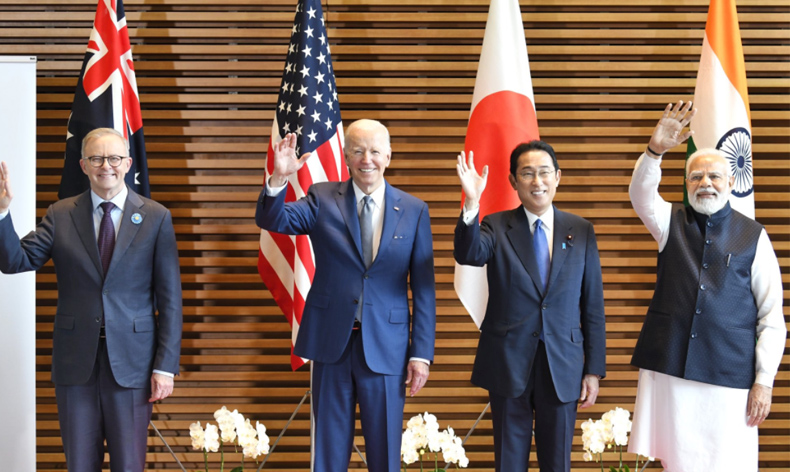Ahead of President Donald Trump’s maiden visit to India,four influential US Senators, who described themselves as “longtime friends of India”, have sought an assessment of the human rights situation in Kashmir and religious freedom in the country, saying hundreds of Kashmir is remain in“preventive detention”.The bipartisan group of Senators, in their letter to Secretary of State Mike Pompeo dated February 12, said that India has now imposed the longest-ever internet shutdown by a democracy, disrupting access to medical care, business and education for seven million people.
The government abrogated Article 370 of the Constitution on August 5, 2019 that granted special status to Jammu and Kashmir, and imposed curbs including on movement of people as well as on mobile telephone andinternet connectivity. The crackdown drew international criticism with several countries expressing concerns over the situation in Kashmir.India has categorically told the international community that its move to scrap Article 370 was an internal matter. According to officials, internet is being restored in the Valley in a phased manner after reviewing the security situation.
The US lawmakers, describing themselves as “longtime friends of India”, wrote in the letter that “more than six months after Prime Minister Narendra Modi’s government unilaterally revoked the autonomy of Jammu and Kashmir, the government continues to block most internet in the region”.“Hundreds of Kashmiris remain in ‘preventive detention’, including key political figures,” they said.
Signatories to the letter are Chris Van Hollen, Todd Young,Richard J Durbin and Lindsey O Graham.“In addition, the Indian government hastaken other troubling steps that threaten the rights of certain religiousminorities and the secular character of the state. This includes the passage ofthe controversial Citizenship Amendment Act which is being challenged inIndia’s Supreme Court,” the Senators wrote.In the letter, the Senatorsrequested Pompeo for a State Department assessment of a number of issues inIndia including the number of individuals detained by the government forpolitical purposes and their treatment; current restrictions on communications inJammu and Kashmir; current accessibility of Jammu and Kashmir; and restrictionson religious freedoms in Jammu and Kashmir.
The actions taken by the Indian government in Jammu andKashmir, they said, have severe consequences. That is why, in the Fiscal Year2020 State, Foreign Operations, and Related Programmes appropriations report,the Congress urged India to fully restore telecommunications and internetservices, lift its lockdown and curfew and release the individuals detainedpursuant to the Indian government’s revocation of Article 370 of theConstitution.
Trump will pay a state visit to India on February 24 and 25at the invitation of Prime Minister Narendra Modi, who on Wednesday said the USPresident’s visit will be a “very special one” and it will go a long way infurther cementing India-USA friendship.
India maintains that the Indian Constitution guaranteesfundamental rights to all its citizens, including its minority communities.
It is widely acknowledged that India is a vibrant democracywhere the Constitution provides protection of religious freedom, and wheredemocratic governance and rule of law further promote and protect fundamentalrights, a senior official of the Ministry of External Affairs has said.
According to the CAA, members of Hindu, Sikh, Buddhist,Jain, Parsi and Christian communities who have come from Pakistan, Bangladeshand Afghanistan till December 31, 2014 following religious persecution therewill get Indian citizenship.
The Indian government has been emphasising that the new lawwill not deny any citizenship rights, but has been brought to protect theoppressed minorities of neighbouring countries and give them citizenship.
Defending the CAA, Prime Minister Narendra Modi last monthsaid that the law is not about taking away citizenship, it is about givingcitizenship.
“We must all know that any person of any religion from anycountry of the world who believes in India and its Constitution can apply forIndian citizenship through due process. There’s no problem in that,” he said.
Leave a comment
Your email address will not be published. Required fields are marked *


